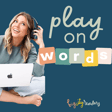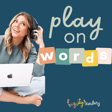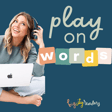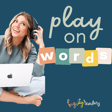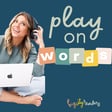Become a Creator today!Start creating today - Share your story with the world!
Start for free
00:00:00
00:00:01

Things I Wish Were Canceled: Sight Words, Letter Of The Week, Behavior Charts, Reading Levels and MORE
Episode 75 of the Play On Words podcast from Big City Readers, host Beth Gaskill dives into the viral trend inspired by Taylor Swift's song "Cancelled," exploring the concept of a "betrayal list" in education. Beth shares her own list of educational practices she believes should be "cancelled" to foster successful readers, including behavior charts, memorizing sight words, and the "letter of the week" approach. She emphasizes the importance of connection, regulation, and adaptive teaching methods over outdated practices.
Timestamps:
- 00:00:00 Introduction and Viral Trend
- 00:03:00 Beth's Full Betrayal List
- 00:06:00 Behavior Charts
- 00:09:00 Reading Levels and Sight Words
- 00:12:00 Letter of the Week
- 00:15:00 The Giving Tree and Rainbow Fish
• 00:18:00 What's Not Cancelled?
Follow Miss Beth
Instagram | https://www.instagram.com/bigcityreaders/
TikTok | https://www.tiktok.com/@bigcityreaders
More Resources: Bigcityreaders.com
Transcript
Introduction to Plan Words Podcast
00:00:00
Speaker
Welcome back to the Plan Words podcast, the podcast that turns research into real-life confidence, finally making sense of the learning to read journey, parenting, and those early years before your child goes to school, and then through those first few early years. So I am your host, Miss Beth, and I am so excited today to be diving in on a topic that actually, ah struck a nerve with the internet, apparently.
The 'Canceled' Trend and Personal Betrayal List
00:00:33
Speaker
So I'm sure by now we've all heard Taylor Swift's new album, um The Life of a Showgirl. She has a song on it called Canceled. It's very catchy.
00:00:44
Speaker
Kindergarteners, first graders, 40-year-old women alike are singing it in the streets. So when something is that catchy, it often becomes a trend. So it became a viral trend where everyone is saying their, quote, betrayal list, and they are playing that song. And so they're just listing things.
00:01:02
Speaker
in whatever niche they have um on the internet about what they would absolutely cancel. um And so I jumped on this trend.
00:01:13
Speaker
And honestly, it's a little difficult for me to jump on trends sometimes because I'm like, am I just saying the same thing over and over? But then out of nowhere, like hundreds of people are asking me about things that I think that I have like drilled and drilled and drilled. And they're like, I've never heard you mention this. Can you dive in? So here we are diving in.
00:01:35
Speaker
What did I mean by listing the things that I want canceled? And why these things aren't always evil, but why we are canceling them here in 2025 if we want successful readers.
00:01:50
Speaker
Okay, so I said the things that i my betrayal list as a teacher, and um a lot of them were things that I actually believed. So I'll give you the list. I said, Lucy Calkins, behavior charts, Fontes and Pinnell, homework, memorizing sight words, letter of the week.
00:02:11
Speaker
um the giving tree, and the rainbow fish. So that's my betrayal or canceled list. And here's what all of those things mean to me.
00:02:24
Speaker
And in a short way, I probably talked about each of these things in their own podcast topic. So check that also if you want a deeper dive, for example, on the Giving Tree. um But definitely have dived a bit deeper on each of these topics specifically on the podcast. But I'm going to go over all of these and why looped them together. They don't really all fit together, but they are just my big enemies.
00:02:48
Speaker
In fact, I actually went to my partner and was like, okay, I explained the trend because he doesn't understand social media. And i was like, so what are things that I'm always talking about that I hate?
00:02:59
Speaker
And he was like, Lucy Calkins. And I was like, well, you can go more specific than that. And I was like, you know, he was like, okay, um, sight words, Bob books, Bob books aren't on my canceled list. I just personally like don't love ah them.
00:03:16
Speaker
However, they are a good decodable. They are ah yeah a good decodable option. and They're just not my favorite in, like, excitement for kids. But if we're just looking at, like, research, Bob books are fine.
00:03:33
Speaker
Okay, so let's start with, like, the big one.
Critique of Behavior Charts
00:03:35
Speaker
The big one, I think, is behavior charts. This was the most, I had the most comments asking why behavior charts are canceled.
00:03:43
Speaker
So a behavior chart is often, like, you might just see three colors, like red, yellow, and green, like a stoplight. And every child starts the day with their name on a clip, and it is on green.
00:03:56
Speaker
And if they make good choices or bad choices, the teacher determines that and tells them to go move their name on the chart.
00:04:04
Speaker
These, I actually have a podcast episode where we talked about this and I told a principal that people asked how to deal with a teacher that is using these charts. And he said, well, that isn't ethical and it wouldn't pass a school check.
00:04:20
Speaker
And I was like, no, a person really wrote that. People are using these still. And so he was just shocked by that.
00:04:28
Speaker
So those are that's that's the quick, easy behavior chart, what it is. Why we don't like it. Okay, so behavior charts, oh my gosh, are soul crushing, honestly, and cause shame spirals only two kids. It gives emotional whiplash and...
00:04:48
Speaker
regulation, ah a an emotionally regulated child is so much greater than reward system or just a quiet class. There's a whole bunch of other types of behavior charts too. There's like class dojo and um sticker charts.
00:05:05
Speaker
And the thing that we want to look for the most that should be canceled is anything that is public for your child in front of the whole class. So So if it's a one-on-one way that a child can modify their feelings and their behaviors with the teacher, that's a different story. But public behavior um tracking is not helpful at all. They might look helpful and it might even seem helpful in the moment. Like maybe you...
00:05:33
Speaker
get your kids to be super quiet in class, but they actually just cause kids to be afraid of getting in trouble. They create so much shame and anxiety. They teach kids to perform, not to regulate.
00:05:45
Speaker
And when they have to move their clip down, their brain goes into stress mode, like fight or flight, like as if they're being chased by a bear, not learning mode. Do you think that kids that are being activated in fight or flight are able to just like learn how to read in that moment.
00:06:01
Speaker
No, they're so focused on behaving, just staying on green, not getting in trouble, that we're losing all of the moments what we can teach them in school. Now, that doesn't mean that we don't hold kids accountable for their own um behaviors. It just means that we want to have up more of a focus in the classroom on less on being good and more on having connection and all of us wanting to take care of each other, including ourselves. So um teachers should be more of a coach than a judge. um
00:06:33
Speaker
And we... We want kids to feel safe in a classroom. If you are a parent and your child does something wrong and is in trouble, do you want them to say, oh my gosh, I can't tell mom or oh my gosh, I have to tell mom. She'll be able to help me.
00:06:49
Speaker
That is the question you want to ask yourself. And that is the big difference here. in how we approach behavior. If we're just looking to punish or shame, then we're not teaching any of that connection or any of that self-motivation or intrinsic motivation that we want kids to feel.
00:07:06
Speaker
Kids are going to make mistakes. They're not going to do everything perfectly. They're going to talk to a friend when they shouldn't be. That's developmentally appropriate. I understand that we need to have expectations in the classroom, but if we just snap and say, move your name because you just talked, or if you just, you know, yell at your kids if they do something wrong, we're teaching them to just hide everything instead of actually being on a team with you.
00:07:30
Speaker
And wanting to have that work toward that same goal. So you want kids in the classroom to feel good. They want to feel like their teacher is their coach, not their judge. They want to feel like they can go to them. They want to feel like they can ask a friend if they need something. They want to feel like they can advocate for themselves.
00:07:48
Speaker
We still are going to hold kids accountable, though, and not like just have chaos. um that's That's a different episode, though. We talk about responsive classroom and responsive logical consequences, and that's what you you should do instead of behavior charts.
00:08:02
Speaker
Okay, moving right along.
Issues with Fontas and Pinnell System
00:08:04
Speaker
How many people do you go into a conversation with where you say, hey, my name is Beth. Nice to meet you. What's your reading level? That would be insane, right, if we were in a conversation as adults?
00:08:16
Speaker
So why do we do it with kids? People, parents, teachers, kids become obsessed with their level and telling people their level and comparing their level. And it is not helping them at all in their reading journey.
00:08:28
Speaker
Reading levels originally were a data point. They were not meant for parents to know. They were not meant for kids to know. So reading levels usually come from this assessment system, Fontas and Pennell. Those are the two people's names.
00:08:42
Speaker
And um that's where you might hear, like, your child is a level C. We want them at a level G. I hate this. First of all, Pontus and Penel assessments are not helpful. They teach kids to memorize.
00:08:56
Speaker
So it is based on a lot of memorized words. um I conducted this assessment thousands of times, literally thousands of times in an entire school.
00:09:07
Speaker
And I know every single book in that system, like the back of my hand, And certain kids would score higher on certain levels if the book at that level was at their interest. So there's like one about ice skating, but then, you know three levels earlier, so three levels easier, was about like fishing. And a lot of kids weren't interested interested in that.
00:09:27
Speaker
But they maybe had gone ice skating and they knew some of the words. So they could pass three levels higher, but not the one three levels lower because they didn't know any fishing words and they really weren't interested.
00:09:39
Speaker
So there's so many variables also that go into these assessments. Like I would pull kids from gym class or right after lunch or right before lunch. Right after lunch, they're tired. Right before lunch, they're hungry.
00:09:50
Speaker
um If they're missing gym, they want to get back to gym. There are so many variables. Like think about it with your own self. And if you like have a great workout one day and then the next day you do the exact same workout and you're like, wasn't as good as it was yesterday.
00:10:06
Speaker
Or I'm sore from this one and a week later I did it and I'm not sore from this. Like there's so many variables. That. Workout being like different good some days and not good some other days or hard for you some days and easy for you other days is the same thing that we're looking at with these Fontys and Pinnell assessments.
00:10:25
Speaker
so So that's one thing. Like they're inaccurate. The second thing is is that kids were never meant to know their reading level. Can you think about like being in a conversation with an adult and be like, hi, my name is Beth.
00:10:36
Speaker
What's your reading level? Like, that would be insane to do that at parties. But we're doing it with kids. um And they become obsessed with knowing their level, comparing their level. What's their friend's level? what's What's the level they should be at? And it does not help them on their reading journey.
00:10:54
Speaker
Reading levels were never meant for parents or kids to know. They were a tool for teachers to use as one tool in their toolkit of collecting data points online.
00:11:05
Speaker
of what kids are able to do and how they're progressing. But more than that, reading levels reduce choice and agency for kids. So when kids feel forced to pick in a certain like bucket of their level bin, bin of books like at like level C, it's they don't feel like they have the option of picking something that they do like.
00:11:30
Speaker
So we're taking away that choice and we're taking away their ability to start thinking about what they want, what they're interested in. We're oversimplifying reading when we're when we're so fixated on these reading levels. Reading is really multifaceted. There's a vocabulary, background knowledge, interest, stamina, comprehension, decoding, um spelling patterns,
00:11:54
Speaker
A level ignores all of these different pieces and generalizes-ish, like, where a child is reading. um And it misrepresents growth. A child can often level up but then be struggling a lot with deeper thinking or vocabulary or certain spelling patterns, and they might just pass the level because they knew that one word, where if we gave them a decodable passage, it would show us that they're struggling consistently with a certain spelling pattern, and that is how we can actually attack their problem and help um and have kids have real growth.
00:12:32
Speaker
like ah Reading levels also, like this over-focus on reading levels focuses, ah and causes kids to stop taking as much risk. has Too much focus on reading levels, I have seen, discourage kids from risk-taking. So kids might avoid a challenging text because they're afraid of failing or being below level. so it's going to be embarrassing. And they might actually like be able to read that book mostly.
00:13:01
Speaker
um And they misguide instruction. So matching a kid only to just write leveled text for them denies them access to such rich, complicated scaffolding in books. Research suggests that scaffolding with harder texts can really help kids grow in their reading skills.
00:13:20
Speaker
Plus, it's really inconsistent. The publishing varies. So one publisher might say this is a level A and another publisher might have the same exact book and say this is a level D, which just leads to more confusion for parents. They think, okay, my kid's a level A. I'm buying all these level A books.
00:13:36
Speaker
But it's different based on each publisher, based on each author. It's just dysregulated and a mess. Moving right along to memorizing sight
Sight Words vs. Morphology
00:13:45
Speaker
words. If your child knows... because but can't read the word cat, we have gone too far.
00:13:50
Speaker
Kids have memorized words. This is a different part of the brain. When we are asking kids to decode words and then some words just need to be memorized, we're storing that in different parts of the brain. There are words that are trickier, but we want to teach them the tricky part is what we memorize. So we still are going to sound out the word and then we're going to teach them there is an irregular part, not the whole word. The whole word is not irregular.
00:14:14
Speaker
And we want to use something called morphology, where we kind of talk with kids in a good science bachelor reading curriculum. We talk with kids about where that word came from. For example, the word healthy um is spelled with an e a because it comes from the word heal.
00:14:31
Speaker
So heal does follow the pattern. E-A says e But when we get the word healthy, we have short E sound, eh.
00:14:44
Speaker
But we still spell it with the long E pattern. So when we talk about the origin of the word and go into a deeper word study, this helps kids really understand. It feels confusing to us, but kids are sponges and they are understanding and they love doing word study. And it really helps them store why that word is spelled that way and how to Continue spelling it that way when they read it and when they write it.
00:15:15
Speaker
Letter of the week.
Effective Alphabet Practice
00:15:16
Speaker
I am not opposed to cute activities in preschool where we focus on like C for cookie, cracker, um crunchy, and all of the snacks that week are around that letter.
00:15:27
Speaker
But I am opposed to the curriculum being just focusing on one letter a week. One letter a day is a much better approach because we want to have more frequent practice with the letters.
00:15:38
Speaker
So if you do one letter a day, you have an opportunity to go through the alphabet several times with your class rather than just one letter a week, only lets you go through the alphabet once throughout the year.
00:15:49
Speaker
So we want to give kids frequent practice. So if we're doing like one letter a day, we're getting through seven letters a week. um Or five in the classroom. So another thing, though, I hate about letter of the week is that often, like, it is stretched for a whole week. So let's say every day we're going have snack in preschool that starts with that letter. And so people are doing, okay, day three, it's celery. We already had crackers and cookies and carrots.
00:16:15
Speaker
Now we're on to celery. Do you think three and four-year-olds are ready to understand that C usually says K unless it's followed by an I, E, or Y? And then it says No, we usually teach that systematically in end of first grade or early second grade or when a child demonstrates they're ready.
00:16:32
Speaker
I've never seen—I shouldn't say never—I rarely would see a three-year-old be able to understand and grasp that letters make different sounds. Because at this stage, they're still not even fully grasping that letters need to be facing a certain direction in order to make that sound.
00:16:47
Speaker
For example, B and D. They can't tell which one is which. But if they really were able to understand that a letter needed to be a certain way, they would know that letter makes this sound.
00:16:59
Speaker
um So anyway, letter of the day, much better
Criticism of Children's Books
00:17:02
Speaker
approach. Okay, the giving tree. I want to say I used to think this book was sweet, but I think it is a case study in codependency.
00:17:10
Speaker
I think that there are much better books with healthier emotional stories. um I felt sad as a child reading this book, but I am a deeply feeling person.
00:17:22
Speaker
um Of course, like some people said when I posted this, canceled this, they said that they love to talk about healthy boundaries like with fifth graders when they read this book, and that's great.
00:17:34
Speaker
um Okay, and The Rainbow Fish. So apparently, kind of—okay, and The Rainbow Fish. Apparently the message is kindness means giving away your and body parts for friendship.
00:17:47
Speaker
I don't know. I just think it has a weird message. Again, people commented that they use it in their classroom to talk about what the rainbow fish could have done differently. And that is awesome too. I just think these books are over glorified and unnecessarily like they're not that great.
00:18:05
Speaker
Okay. Sorry. I said it. Okay, so what's not canceled?
Positive Educational Approaches
00:18:09
Speaker
so um ah Hopefully, regulation and connection in the classroom and at home.
00:18:17
Speaker
Explicit and systematic phonics instruction. Fun, multisensory learning. Play-based learning. Letting kids learn to advocate for themselves.
00:18:28
Speaker
Teachers who adapt, evolve, and laugh through it. And real-life reading moments, like having fun reading a sign on the way to the park or a word at a dinner menu or playing a sound game in the car on the way to a family vacation. So cancel. Culture aside, this is a funny trend. This isn't about shame. We um just want to do better when we know better. i wish I had someone tell me these things when I was a classroom teacher using a behavior chart, when I was telling kids to memorize sight words, when I was doing letter of the week. I wish I had somebody that was pointing me to strategies that were more research-backed to help the kids that I was working with. And when we know better, we do better. And hopefully we can all laugh about the fact that we've all once laminated a piece of paper that says, don't know the word?
Reflecting on Teaching Methods
00:19:25
Speaker
Can you just look at the picture and guess? It sounds insane now. Like now I'm like, how did I go so long teaching that strategy? But we have all done it.
00:19:36
Speaker
We were all betrayed. And hopefully this is just a little bit more information for you to feel equipped and empowered and know that there are other ways if something isn't working for you and your family.
00:19:47
Speaker
Okay, that's it for my canceled list. If you have something you want to add, let me know. Message me at bigcityreaders on Instagram. And make sure you are following and subscribe to this show. And if you like this episode, will you rate and review it? It helps us show up for more parents to be able to get this message. And we want to change the world and make every single parent feel empowered and excited and help their kids love learning. So if you want to be a part of that, please share this with a friend and message me if you have any questions and maybe we will answer it here on the show.
00:20:25
Speaker
All right. That is all for this episode. So I will see you in the next episode of the Play on Words podcast from Big City Readers. I'm Miss Beth, and I hope you learned something and had a little fun hanging out here with us today.
00:20:40
Speaker
See you next time.
